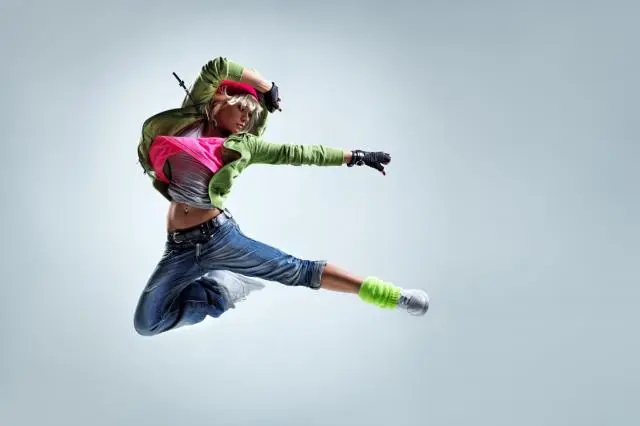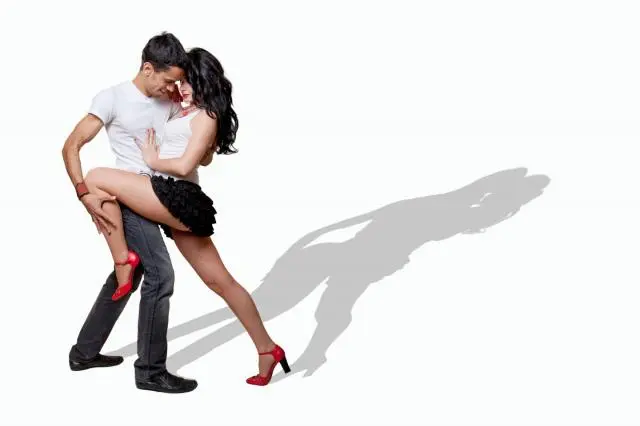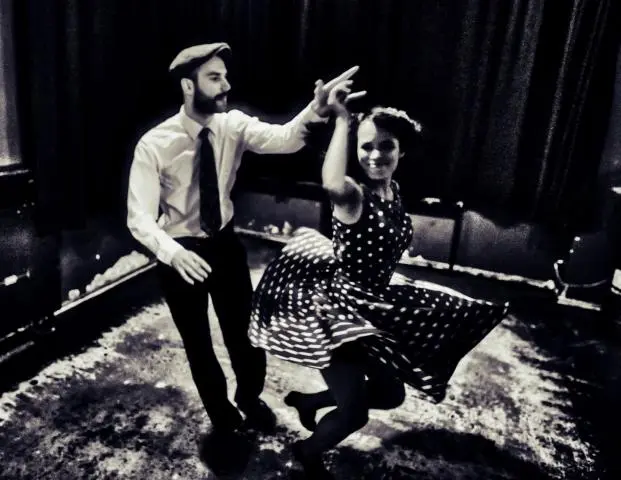Modern Dance in America
Modern expressive dance for young and old
Modern Dance - The Modern Expressive Dance for Young and Old
Modern Dance is closely related to the dance style Contemporary. However, Modern Dance is a much older version of expressive dance that has existed since the beginning of classical ballet and standard dances. Modern Dance has been evolving since the year 1900, and parts of this early variation of contemporary dance can be admired in old shows, performances, and even silent films. Naturally, the style of Modern Dance has continually changed in line with its name. Every era, every generation, and every individual are influenced by their own emotions, which can be processed and danced in Modern Dance. Thus, this dance style always takes on its own individual character. Modern Dance is liberating and full of emotions. Whether political, cultural, or private themes are processed in this modern expressive dance, the dancers always put their hearts into it, becoming one with the music and movement.
Modern Dance wear
-
Tops: Look for tops that are made from breathable, moisture-wicking fabrics like cotton or polyester. You'll want something that will move with you and not restrict your range of motion. Tank tops, camisoles, and fitted T-shirts are all popular choices.
-
Bottoms: Leggings, capri pants, and joggers are all good options for bottoms. Again, make sure the fabric is breathable and comfortable. You can also consider wearing shorts or a skirt, but make sure they are long enough to avoid riding up during your movements.
-
Shoes: Bare feet are common in modern dance, as they allow for the best connection with the floor. However, if you prefer to wear shoes, choose something that is lightweight and flexible, such as jazz shoes or dance sneakers.
-
Underwear: Wear supportive underwear that won't bunch or ride up. You may also want to consider wearing dance tights or leggings under your clothes for added warmth and coverage.
Modern Dance Techniques
The vibrant world of modern dance boasts a diverse range of styles, each with its own unique flavor and approach to movement. Here's a glimpse into some prominent types you might encounter:
-
Graham Technique: Pioneered by Martha Graham, this influential technique emphasizes powerful contractions, spirals, and falls, exploring raw emotions and intense imagery. Imagine dancers digging their feet into the ground, reaching with outstretched arms, and moving with dramatic expressiveness.
-
Limón Technique: Founded by José Limón, this technique focuses on fluidity, weight transfer, and the use of breath to guide movement. Think dancers flowing seamlessly across the floor, utilizing dynamic changes in tempo and incorporating balletic influences.
-
Horton Technique: Developed by Lester Horton, this technique emphasizes anatomical alignment, spatial awareness, and dynamic changes in energy. Picture dancers exploring diverse movement qualities, from explosive jumps to grounded stillness, with a focus on athleticism and power.
-
Release Technique: Founded by Mary Overlie and Audrey Keane, this technique prioritizes releasing muscular tension and responding to gravity. Imagine dancers moving with a sense of weightlessness, exploring falls, spirals, and floor work with a focus on organic flow and improvisation.
-
Contact Improvisation: This improvisational dance form involves spontaneous interaction between dancers, using touch and weight-sharing to create dynamic movement sequences. Think dancers physically connecting, supporting, and challenging each other in ever-evolving, unpredictable patterns.
-
Postmodern Dance: As modern dance evolved, Postmodern dance emerged in the mid-20th century, challenging traditional techniques and forms. It often incorporates humor, theatricality, and everyday movement, questioning conventions and pushing boundaries. Imagine dancers using everyday objects as props, engaging in playful gestures, and breaking away from structured choreography.
Modern Dance steps
-
Chasse: A simple jump found often in modern dance, involving shifting the weight while in a plie stance and then jumping so both feet are vertical together in the air.
-
Curl Down and Up: Starting in jazz first position, this step involves curling the spine over slowly, bending the knees, and then growing back upward, one section of the spine at a time.
-
Leg Swings: Involves standing in parallel first position and swinging the leg forward with a pointed toe, then brushing it through the first position and following through backward, slightly bending the knee.
-
Flat Back: After bending over, raise the torso back up with the arms in high fifth position, executed with discipline and flexibility.
-
Tendu: A movement where the foot points forward and back into parallel first, and then to the side and back, alternating in a rhythm
Modern Dance contemporary
Contemporary dance is a style of dance that has evolved from modern dance and ballet. It is characterized by its fluid and expressive movements, which are often improvised and free-flowing. Contemporary dance is not codified, unlike modern dance, which has specific rules that govern body placement, movement qualities, and choreographic composition. Contemporary dance combines several elements of several dance genres, including modern, jazz, lyrical, and classical ballet.
Contemporary dance is often performed to many different styles of music, and it stresses versatility and improvisation, unlike the strict, structured nature of ballet. Contemporary dancers focus on floorwork, using gravity to pull them down to the floor. This dance genre is often done in bare feet. Contemporary dance can be performed to many different styles of music. Pioneers of contemporary dance include Isadora Duncan, Martha Graham, Merce Cunningham, and Lester Horton; they all believed that dancers should have freedom of movement, allowing their bodies to freely express their innermost feelings.
Modern Dance types
Lyrical or Contemporary Dance: Lyrical or contemporary dance is a style that blends elements of ballet and jazz dance. It focuses on expressing emotions and telling a story through fluid and graceful movements. Contemporary dance stresses versatility and improvisation, unlike the strict, structured nature of ballet. It can be performed to many different styles of music and often involves floorwork, using gravity to pull dancers down to the floor.
Jazz Dance: Jazz dance is a dynamic and expressive dance style that combines the techniques of ballet and contemporary dance with original African influences. It is known for its rhythmic and sensuous choreography, featuring unique moves, complex footwork, and exciting, energetic performances. Jazz dance often incorporates isolations, grounded movement, syncopation, and contractions.
Hip Hop Dance: Hip hop dance is a style characterized by bounces and rocks executed to hip hop music. It has deep historical and social roots in African American culture and was developed without a formal structure. Hip hop dance includes elements such as isolations, popping, locking, and breaking, and it has a competitive nature, with dancers challenging each other with their moves
Pure Emotions in Modern Dance
Modern Dance can be danced solo or in groups. Stories can be told here, and feelings and situations are expressed through dance steps and movements that harmonize perfectly with the selected music. Modern Dance can be danced to all music styles. The crucial aspect is that the dancer can identify with the music, and it aligns thematically with the dance.
The dress code for Modern Dance is also absolutely casual, and what the dancers wear is dictated by the choreography and what makes them feel comfortable. Modern Dance is often characterized by dancers wearing tight stockings, leggings, shirts, or flowing dresses and scarves. The history itself often influences the outfit. Mostly, dancers dance barefoot, but here too, the dancer can decide on suitable footwear based on personal moods.
Learning Modern Dance - Time to Dance Out Emotions
Modern Dance is undoubtedly a beautiful hobby. You are in motion, strengthening your muscles, regularly stretching your body, and promoting flexibility, tension, and posture. Dance also has a positive impact on self-confidence and is good for the body, mind, and soul.
The challenge often arises when finding the right dance partner. Not always is a life partner enthusiastic about the Modern Dance project. However, you can easily learn this dance style alone or encourage your best friend or friend to learn something exciting and new with you.
Whatever the case, you can definitely register with Lets-Dance. Here you have the opportunity to find like-minded people through a portal, and maybe you'll be joining in Modern Dance to process your emotions after a short time. With Modern Dance, you are guaranteed to discover a fantastic new hobby for yourself.
Shop
Popular blog posts about dancing
Create your dance profile on Lets-Dance
Register your dance school
Top cities
Top dances



